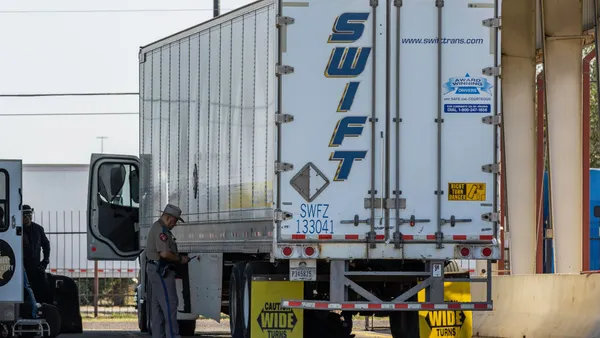Dive Brief:
- Employees and employers agree that continuous coaching is necessary, especially in the current work environment, according to results of a recent Reflektive survey.
- The amount of business leaders who expect managers to offer daily feedback has increased 170% since 2018, Reflektive said. The survey of 445 HR and business leaders, and 622 employees, also revealed an 89% increase in employees who want formal performance conversations on at least a monthly basis.
- But a quarter of employee respondents said they don't know how to ask for feedback, while 85% of managers said they believe employees are clear on feedback request processes. Empowering employees to initiate feedback conversations is crucial to their growth and development, the organization concluded.
Dive Insight:
It's no secret that employees are eager to get more time and feedback from managers. And as employees seek individualized development opportunities, frequent manager feedback can be part of the solution.
Direct, useful feedback is not always easy to deliver, sources say. A YRC driver at the FMCSA's Truck Safety Summit last week shared that, once the carrier's drivers bought into the implementation of forward-facing cameras, they began reporting incidents before the footage enters the review process, allowing them to talk through what happened.
But constructive, direct feedback requires a healthy culture of honesty and continuous improvement. "To truly engage employees in a way that won't overload them, a culture of constructive, helpful, and enabling feedback is necessary," Niamh Graham, VP of global HR at WorkHuman, previously told Transport Dive sister publication HR Dive. "This starts at the top of the organization."
This kind of culture is key for some fleets to upholding safety standards. Brett Sant, SVP of safety and risk management for Knight-Swift, echoed Graham's sentiments last week at the summit, saying the commitment to safety starts at the top and permeates throughout the organization.
"Everybody needs to be aligned with the same values and the same objectives, and that commitment needs to be real and sincere, because if it isn't, people learn that really quickly," he said.
Due to the coronavirus pandemic, many employees and managers are now experiencing feedback conversations remotely. Managing remote employees can involve many changes, including rethinking hours, timing and structure of team meetings, and communication methods and frequency. All signs point to a need for managers to be more assertive and proactive in outreach and instruction for direct reports.
Even before the pandemic, J&M Truck Group has encouraged drivers to call in, typically to a driver manager or dispatcher, when they're in an uncomfortable or abnormal situation. Dave Edmondson, the carri's VP of safety and compliance, told summit attendees he would rather talk through a safety situation at 2 a.m. than receive a call with bad news at 2:15 a.m.
"And they're welcome to do that at any time, day or night," Edmondson said. "I think that is something that really helps, just simply empowering the driver to have that ability."
Soliciting feedback from employees is important for fleets, as well. USA Truck reduced "out of control" turnover by almost 28%, in part, by gathering feedback to get a better understanding of what was causing drivers to leave.
USA Truck said after the comments were assessed, the company knew why 75% of its turnover was occurring. Changes were made to "alleviate the triggers" leading to workers quitting, carrier officials said.
S.L. Fuller contributed to this report.













